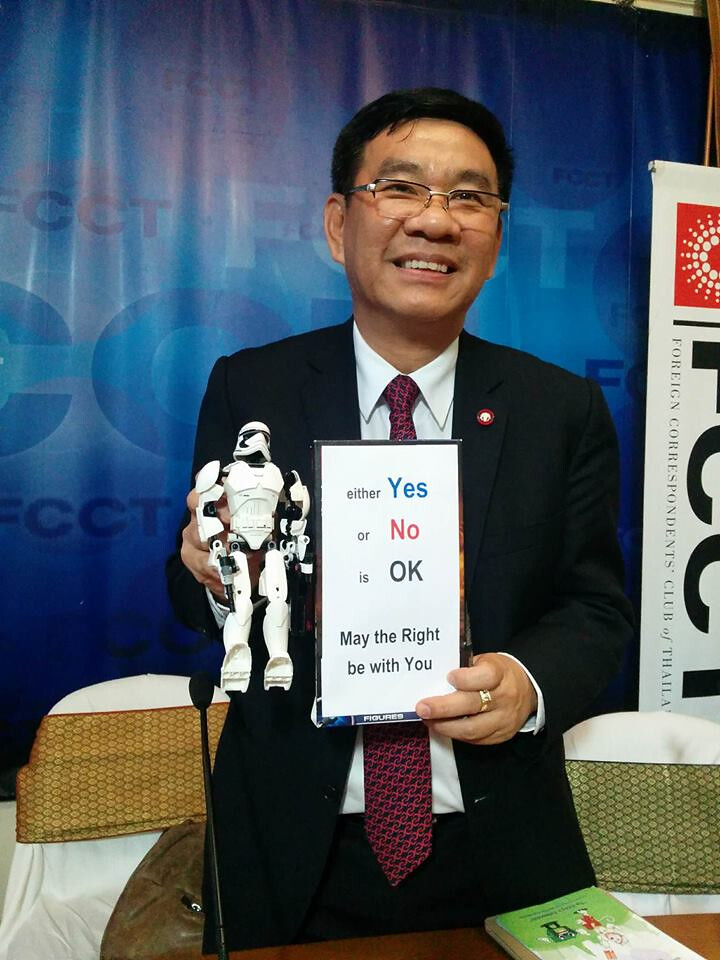An Election Commissioner has claimed that the public inclination to self-censoring their opinions on the charter draft because of a climate of fear was not the commission’s fault, adding that if people want to know exactly what they can or cannot do during the referendum, they had better ask the junta.
On Thursday, 30 June 2016, Somchai Srisuthiyakorn, a commissioner of the Election Commission of Thailand (ECT), told the media at the Foreign Correspondents’ Club of Thailand that the Commission never suppressed a free discussion on the draft charter or the August referendum. On the contrary, the ECT even encouraged the media to host a free debate on the draft charter between two different political affiliates but the media themselves usually impose self-censorship.
Somchai Srisuthiyakorn joins the NDM campaign ‘Let dolls speak for us’ using a storm trooper figure to promote fair play in the August referendum (photo by: Wasamon Audjarint)
Somchai explained that the ECT was appointed to provide the public with information about the draft charter on television, so the ECT asked TV stations to independently produce programmes to debate the draft charter without any interference from the ECT. However, the stations decided by themselves not to invite certain politicians.
“I myself called the producer [of a TV programme], asking them to added Chaturon Chaisang, Pongthep Thepkanjana, or Chusak Sirinil onto their programme. All of them are Pheu Thai politicians. However, the producer insisted on not changing their decision,” said Somchai. “Therefore the current political climate is not the ECT’s fault. Other sectors were worried about hosting panels on the referendum themselves, but everyone keeps blaming the ECT.”
Somchai also confirmed that so far only two people had been prosecuted under the controversial Referendum Act and the two have already conceded to the ECT that they really broke the law. In the case of those who were prosecuted for running referendum campaigns, like the seven activists from the New Democracy Movement (NDM), Somchai reasoned that they breached the junta’s orders, which has nothing to do with the ECT’s Referendum Act.
Asked by the media who people have to ask if they want to know exactly what they can or cannot do during the referendum -- the ECT or the junta, Somchai replied without hesitation “the junta.”
“The junta use a different law from us. They might perceive those who run the campaigns as instigators of violence. In the overlap between two laws, the Referendum Act cannot overrule a national security law. If the security forces say that something cannot be done, then it cannot be done,” Somchai said.

